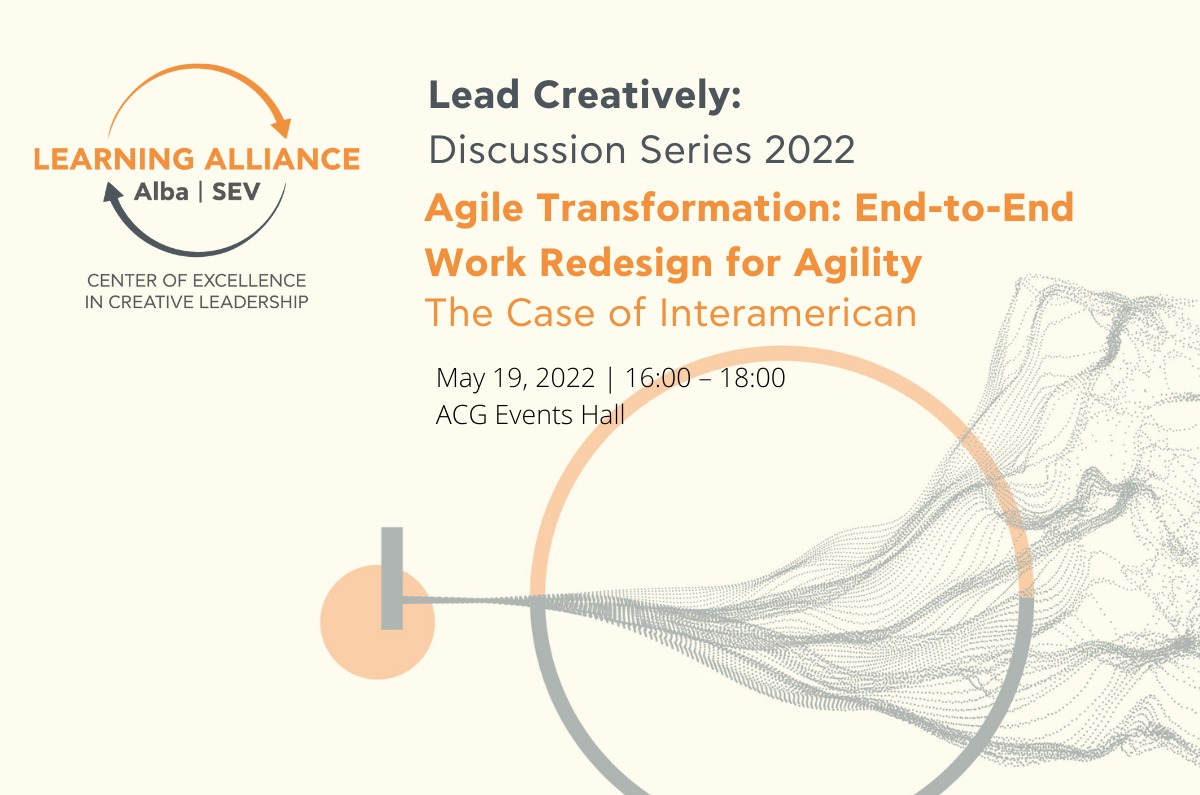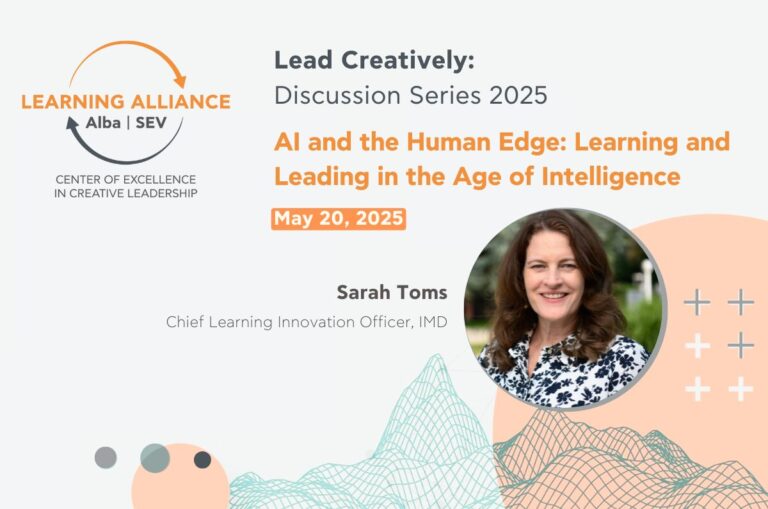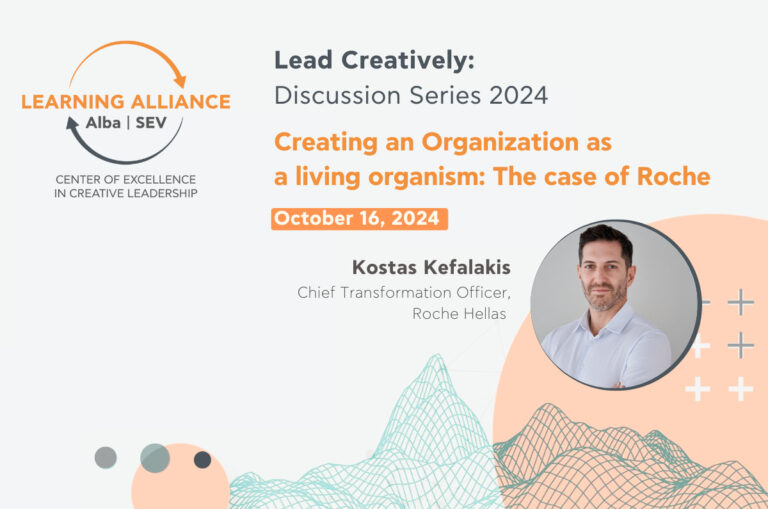Agile Transformation: End-to-End Work Redesign for Agility | The Case of Interamerican
Drossia Kardasi, Head of Human Resources, Interamerican, and Professor Evangelia Demerouti, Eindhoven University of Technology
The event, organized by SEV’s Center of Excellence in Creative Leadership, will be held in Greek, on Thursday May 19th, between 16:00 and 18:00 at the Events Hall of the American College in Greece (6 Gravias Street, Agia Paraskevi). It will also be livestreamed.
Register to attend physically or online:
LOGIN (in case you have already registered for events by SEV’s Center of Excellence in Creative Leadership) or REGISTER HERE (in case you haven’t registered for events by SEV’s Center of Excellence in Creative Leadership)
Interamerican recently implemented agile ways of working in Greece, end-to-end across the organization. Drossia Kardasi, Head of HR, will present their case study and Professor Evangelia Demerouti will discuss the foundations of redesigning work for agility and the implications for leaders and employees.
In the digital economy, the limited resource is the capacity of the organization to engage with the constant stream of evolving technologies and creatively re-imagine its future. This is the essence of agility: more than sensing and reacting to changes in the environment, agility involves the capacity to sustain the creative vitality of the organization for continuous innovation that keeps the company abreast of changes in the environment.
But therein lies a paradox. On the one hand, the purpose of organizing is to bring some stability, consistency and predictability by means of discipline and routine around certain competencies that produce competitive differentiation. On the other hand, the competencies that brought success in the past may become a trap preventing the organization from evolving and adapting in a changing environment.
The agile way of organizing work seeks to resolve this paradox by bringing focus and direction to experimentation, discovery, and the constant improvement of methods and practices. However, whereas many companies adopt agile ways of working in selected, often isolated parts of the business, such as new product development, progressing to end-to-end agile is a tremendous challenge attempted by very few companies.
Based on both academic research and the first-hand experience of Interamerican, our speakers will discuss values, behaviors, leadership, structure, performance management, the experience of change for individuals and the organization, the conditions for sustaining agility over time, as well as how to address the consequences of such changes on occupational health and well-being.





